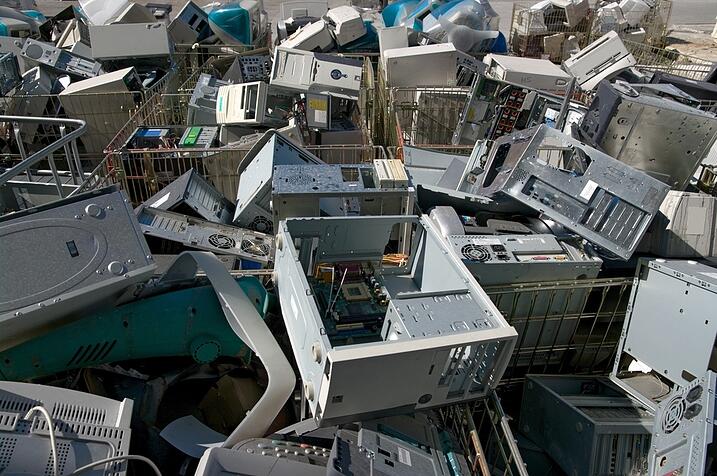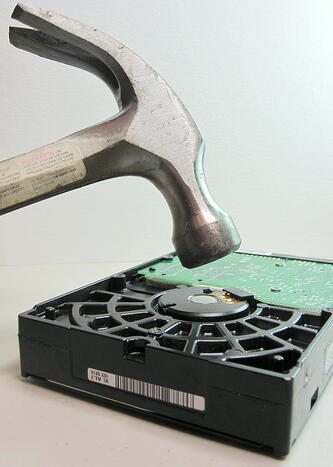The Risk of Identity Theft and Dangers of Computer Disposal
If you’ve ever thrown away or recycled an old computer, there’s a good chance you have unwittingly put your personal information at risk.
Unfortunately, in this age of digital credentials and identity theft, criminals are always on the prowl searching for more convenient ways of obtaining the information on their next victim. This problem has worsened over time, of course, as a result of the more numerous and diverse methods of spending money and saving information, especially financial information, online. From online banking to online shopping, birthdays to credit card numbers, the computers of today store more of, well, you, than ever before.
In many cases, the threat of identity theft comes from online, in the form of phishing websites, trojan horses, or company breaches. However, what many don’t seem to realize is that the computer itself often saves information to its hard drive over the course of its life, some of which can be used for nefarious purposes if discovered. Many such perpetrators will actually go digging through dumps, scrap yards, or take-it-or-leave-it areas looking for old computers and their hard drives to try and acquire this information, and an alarming number of these types are quite successful at accomplishing this goal.

So, when recycling or disposing of a computer, one of the most important steps you can take to make sure you don’t fall victim to this type of scheme is to make sure that there is nothing left to retrieve. Contrary to popular belief, files are not actually deleted when they are “deleted”. Most are still perfectly retrievable with the right tools, and only through more advanced methods can data be permanently erased. However, most perfect drive wipes take a while, and involve steps that would not be so simple. As a result, the best way is usually a more direct approach.

Whatever the case may be, so long as the drive is no longer functioning when you’re through, it should be safe to dispose of.
If you’re unsure of how to do this, or would feel more comfortable, contact us at RGB Computer Solutions or your local IT.
Related posts: The Information Safety Net, Upcycling Your Old Computer: CloudReady
